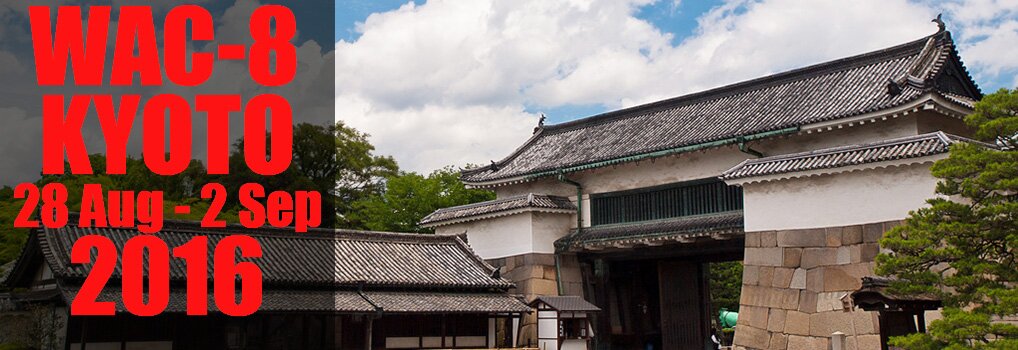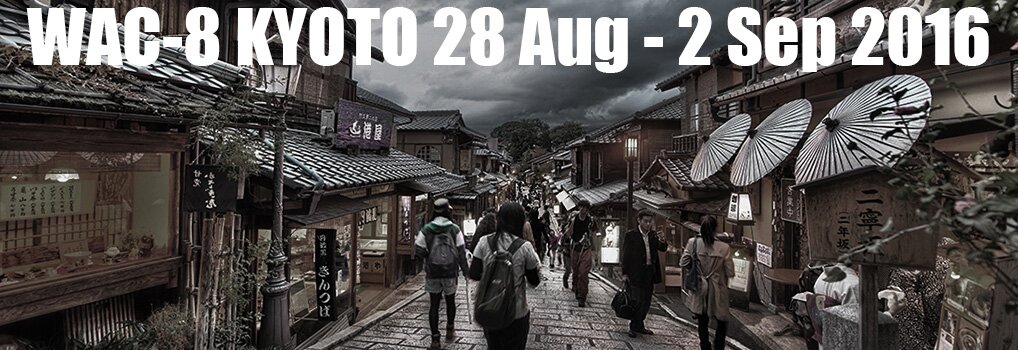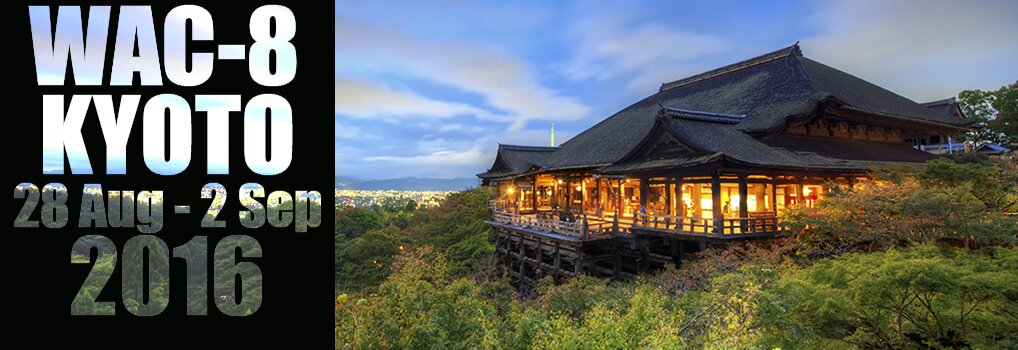Call for sessions
Please carefully read the ‘Guidelines’ below first, then go to the session proposal form. Call for sessions will close at the end of December.
The application for session proposal was closed on 31st December 2015.
Guidelines for proposing a session for WAC-8
Anyone with a serious interest in discussing current issues in relation to archaeology, heritage, material culture or a related field is eligible to propose a session for WAC-8. Sessions should emphasize international participation and global perspectives, and thus it is required that sessions be organized by two or more individuals, each from a different country/tribal group/language group. Organizers who need help identifying a co-organizer are welcome to submit proposals with a request that the scientific committee suggest a co-organizer. A small number of sessions without co-organizers from diverse backgrounds will be accepted.
You may propose a session with all the papers to be presented in it already selected (by you) and agreed (by all the individual paper presenters) in advance, on the condition that you submit your session proposal at the same time that you email all the individual paper abstracts to the Scientific Committee. Be aware that WAC sessions are not usually “closed” unless all the participants of the session actually register for the meeting. Presentation slots that are vacated may be filled by the Scientific Committee.
Alternatively, you may propose a session without any pre-selected papers or with one or a few pre-selected papers. In that case, the Scientific Committee will fill the remaining slots by sending out individually submitted paper abstracts to theme organizers, who will then decide what sessions to include the papers in, in consultation with relevant session organizers.
Session format
Symposia, workshops, forums, debates, and demonstrations are all suitable formats for WAC-8 sessions (see definitions below). A typical session lasts for two hours (i.e., 120 minutes). All sessions must have discussion time of at least 20 minutes allocated at the end. The format of workshop, forum, debate, and demonstration sessions may be flexible and creative as long as the length (2 hour) and discussion time (20 minutes) requirements are met. Symposia will feature traditional paper presentations. In principle, each paper should be 15-minute long, with 5 minutes set aside for Q&A after each presentation – i.e. 20 minutes in total to be allocated to each presentation. Thus, a symposium session may be comprised of five 20-minute presentations (15-miunite paper plus 5-minute Q&A) and a 20-minute discussion at the end. The two-hour session unit format can be multiplied. In that case, a tea break or lunch time will be inserted between two-hour slots. The session organizer may adjust this session format in consultation with the relevant theme organizers.
To propose a WAC-8 session, you will be asked for the following information on the WAC-8 submission website.
(1) Session organizer names, email addresses and affilliations
As noted above, a session should be undertaken by two or more individuals from different country/tribal/language groups.
(2) Submission details: Title of session and abstract
Session abstracts should be 150-200 words and include: a basic description or rationale for the session, and an idea of the range of participants and perspectives to be included.
(3) WAC-8 Theme
Select the WAC-8 theme you think is appropriate for your session. If you are not sure which theme is appropriate for your session, check the box titled “Undecided” and your session will be placed in a theme by the WAC-8 Scientific Committee. Abstracts of the current themes are available on the WAC-8 website.
(4) Type of Session
Symposia, workshops, forums, debates, and demonstrations are all possible formats for WAC-8 sessions. The Program Committee encourages diverse types of sessions. Select the session type that best fits your proposal, or select “Special Session” and contact () for other options.
- A workshop is a session where experts provide knowledge and/or training on a particular topic or methodology (e.g. publishing in archaeology).
- A forum is a discussion-based session where short presentations by panelists are followed by discussion between presenters and the audience.
- A debate is a session with a moderator and panelists where current issues are discussed and debated.
- A demonstration session may include displays and explanations of a technology or art form (e.g. ancient pottery-making techniques).
(5) Keywords
You must list three keywords or phrases that describe your session, separated by commas. Example: “landscape, geoarchaeology, identity politics”
(6) Remark/Message to the Program Committee
If the session has a pre-identified list of presenters, list the presenter names and tentative titles of contributions here. You may also use this space to provide any other information you feel is relevant to the Program Committee.
Once your session has been approved by theme organizers and the Scientific Committee, you will be provided with instructions to pass along to your session participants. Instructions will include how to add discussants and/or session “chairs.” We encourage all participants to be members of WAC.
Note on publication
The full conference proceedings of WAC-8 will not be published. However, the organizing committees and WAC Executive encourage the publication of the best papers and sessions from WAC-8, those which are intellectually stimulating and most in-line with WAC aims. All session and theme organizers please note that presentation at WAC involves an agreement to publish in the One World Archaeology book series, the journal Archaeologies, or another WAC publication. This is especially the case with papers presented by people who have received support from WAC to attend the Congress. We depend on these publications for support and to keep the organization going. WAC publication series are prestigious and receive attention across the world – thus, publishing WAC-8 presentations in a WAC series benefits both the author(s) and the organization.




